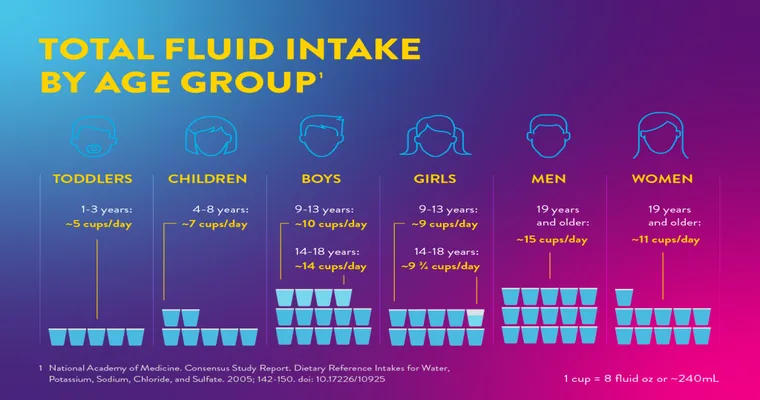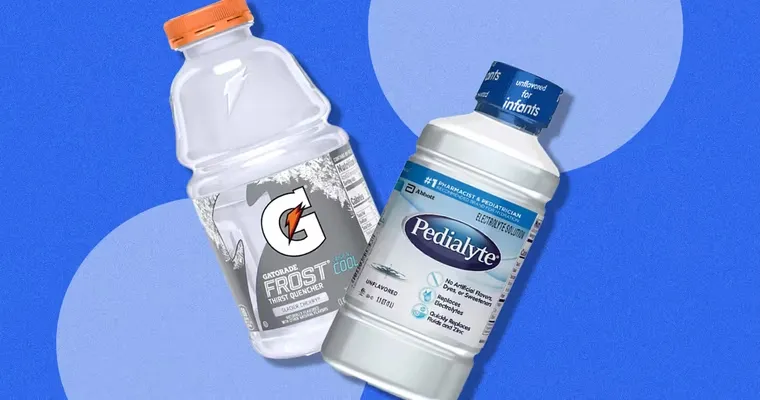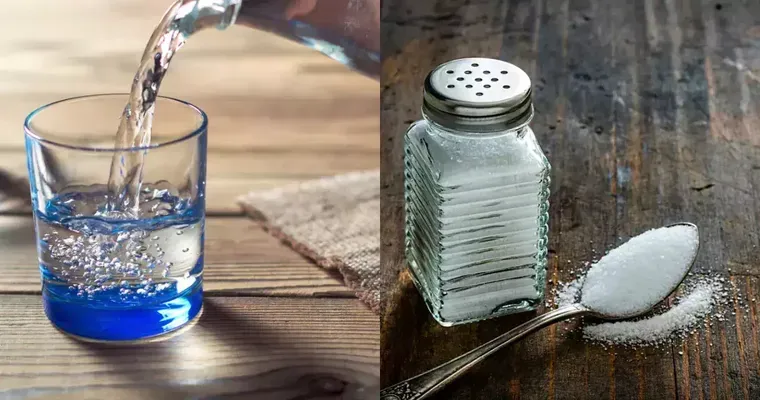Staying properly hydrated is essential for maintaining good health, and understanding how much "daily water intake" is necessary to prevent "dehydration" is crucial. Many factors can influence your hydration needs, including age, gender, activity level, and climate. In this article, we will explore the recommended daily water intake and tips to ensure you stay hydrated throughout the day.
The general guideline for "daily water intake" is often cited as eight 8-ounce glasses, which is roughly about 2 liters or half a gallon. This rule is easy to remember and serves as a good starting point for most people. However, individual needs can vary significantly. For example, men typically require about 3.7 liters (or 13 cups) of total water per day, while women need about 2.7 liters (or 9 cups) from all beverages and foods.
To determine your specific hydration needs, consider the following factors:
1. "Activity Level": If you engage in physical activities or exercise regularly, you will need to increase your water intake to compensate for fluid loss through sweat. It is advisable to drink additional water before, during, and after exercise.
2. "Climate": Hot or humid weather can lead to increased sweating, requiring you to drink more water to stay hydrated. On the other hand, if you are in a colder climate, you might not feel as thirsty but may still need to maintain your water intake.
3. "Health Conditions": Certain health issues and medications can affect hydration levels. For instance, illnesses that cause fever, vomiting, or diarrhea can lead to significant fluid loss. If you are pregnant or breastfeeding, your water needs will also increase.
4. "Diet": The foods you consume contribute to your overall hydration. Fruits and vegetables, for example, contain high water content and can help you stay hydrated. Conversely, a diet high in salt or sugar may require you to drink more water to compensate.
To prevent "dehydration", listen to your body. Thirst is a natural indicator that you need more fluids. Clear or light-colored urine is another sign of good hydration, while dark yellow urine may indicate that you need to drink more water.
Here are some practical tips to ensure you meet your daily water intake:
Carry a reusable water bottle to make it easier to drink water throughout the day.
Set reminders on your phone or use apps to track your water intake.
Incorporate water-rich foods into your diet, such as cucumbers, oranges, and watermelon.
Make it a habit to drink a glass of water before each meal.
In conclusion, the amount of "daily water intake" needed to prevent "dehydration" varies from person to person. By considering your activity level, climate, health conditions, and diet, you can better determine your hydration needs. Staying mindful of your water consumption will help you maintain optimal health and prevent dehydration effectively.





